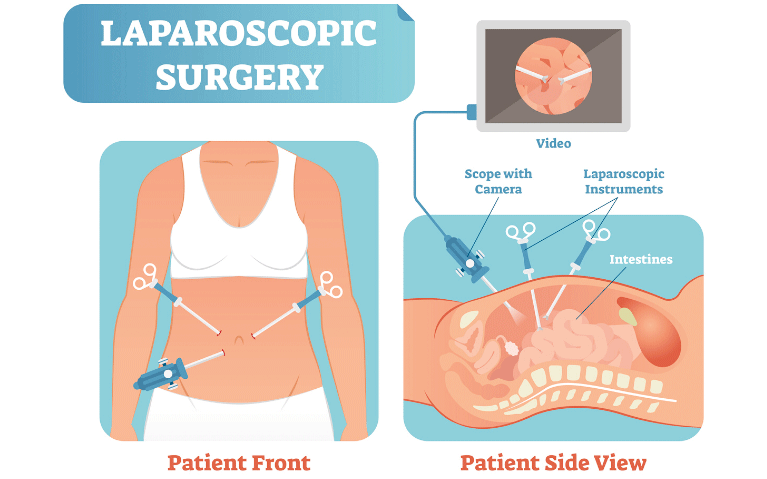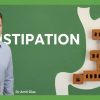Goa is abuzz with excitement as vintage bike and car owners, users, collectors and fans are decking […]

UNDERSTANDING RECTAL PROLAPSE!
July 30- Aug 05 2022, MIND & BODY, HEART & SOUL July 29, 2022The old observation about the gut and the brain being responsible for many a digestive or alimentary system problem is true. Research has proved it over and over again. Both the industrial food revolution and large scale agricultural farming based on chemicals to boost production and prolong shelf life, many scientists say, have affected human health negatively. We see all around us an epidemic of degenerative diseases and crippling situations which compromise with quality of life – ironically, although we are living longer! Rectal prolapse is just one of the problems we are seeing frequently nowadays…
By Pankajbala R Patel
THE number of people suffering from rectal prolapse is growing. It is one of the most annoying conditions to suffer from as the years and the wear and tear of body beautiful catches up with us. Especially, if we have been neglecting ourselves vis-à-vis the twin factors contributing to better health parameters: the kind of food we patronize, the amount of movement in life!
There are also other factors over which we have no control. Many things take a toll of the body externally and internally. What happens to us unexpectedly – say an unfortunate incident or accident — contributes towards the early degeneration of the body and its internal organs. For example, spinal injuries may have a lifelong bearing on eventual conditions like posture and eventual rectal prolapse.
Coming to rectal prolapse you will be surprised to hear how many humans do suffer from it early in life or later in life. Usually it is women who’ve been through too many pregnancies and children suffer from it, but even men who have atrocious eating history and stressful lifestyles from childhood pay the price later on when their bodily system degenerates faster. I have observed that those growing up in slums have more than their share of digestion problems — for they are never sure of either quality or quantity of food on a daily basis and oftentimes are forced to make do with comes their way to fill a hungry belly…to make it through a working man or working woman’s day no matter how humble.
GENERALLY speaking, one may take it that rectal prolapse is a medical condition in which the rectum starts pushing out of the anus — as muscle tone and the nervous system weaken over time for various reasons (which could also be medications).Primary malnutrition too plays a role and with a constant intake of medications the body’s chemistry increasingly turns into an acidic afflicted place eventually.

SUFFER IN SILENCE?
MOST of us do not look at our own body in totality and neither does the medical fraternity of mainstream medicine! And may ask, what is the rectum? The rectum is the last part of your large intestine and the anus is the opening through which the body’s waste matter or stool or shit exits the body. Reportedly, 2.5 out of every 100,000 people suffer from major rectal prolapse. Most folk suffer the situation in silence as long as they can, making it worse later on. Here are some observations and insights from the Cleaveland Clinic and other research which has taken place on this little discussed, often neglected topic!
We wake up, we work, we eat, we go to sleep and so on in a routine day. When food is digested and the waste matter or stool arrives at your rectum, it triggers off an urge to defecate. It’s a network of muscles which push the faeces out of the anus automatically and smoothly, that is, if the anal mechanism is working perfectly.
With aging and changing body anatomy and chronic digestion problems like constipation one may sooner or later arrive at a rectal prolapse situation, whereby the rectum itself slips out of the anal canal, so that you may feel it with your hand and try to push it back into the rectum cavity or pelvic bowl where it may stay snug till the next evacuation.
“Prolapse” is the term healthcare providers used to describe any body part that has fallen from its normal position in the body. It usually means that the muscles supporting the area or part have weakened or deteriorated. Some weakening or deterioration is normal with aging, but extra wear and tear on the muscles can accelerate the process. Childbirth, chronic constipation, constant diarrhoea, take a toll of the elasticity of the rectum canal.
As pointed out before rectal prolapse is more common in older people with a history of constipation and problems with the muscles of the pelvic floor. Interestingly, it is more common for women in the ratio of 6:1 and especially in those over 50 years. It may also occur in young children who are victims of chronic diarrhoea courtesy unsanitary living conditions and poor quality nourishment.
Rectal prolapse can seriously compromise quality of life. Initial discomfort gives way to complications further down the road with pooping difficulties such as faecal incontinence (when you may find yourself taking to wearing adult diapers). Do not confuse rectal prolapse with haemorrhoids or piles although symptoms can be similar. It is not uncommon to confuse one with the other. Haemorrhoids are swollen blood vessels in the anus or rectum – which cause itching, pain, bleeding.
CHRONIC/PROGRESSIVE
HOWEVER, haemorrhoids may lead to rectal prolapse. Rectal prolapse is usually chronic and progressive and the symptoms may change, but it won’t go away without medical intervention. A medical consultant or your doctor may offer some suggestions towards treatment and management of rectum prolapse. This may entail a slew of diagnostic tests to fine-tune treatment and some of them are:
• Digital Rectal Exam. This is a physical exam using lubricated gloved fingers.
• Defecography. This is an imaging study of your muscles when you poop, using an x-ray or MRI.
• Anorectal Manometry. This test measures the strength and tightness of anal sphincters. Lower GI series (barium enema). A series of video X-rays of your lower gastrointestinal tract.
• Colonoscopy. This test examines the inside of your large intestine with a flexible scope.
• Electromyography (EM). This determines if nerve damage is the reason why the anal sphincters are not working properly. It also examines muscles coordination.
Once the reports come in the doctor may or may not recommend surgical intervention. Surgical intervention minimum or maximum is recommended to improve quality of life. That is if the rectal prolapse is critical and putting the patient’s life in danger. In the case of children it is said the problem of rectum prolapse may resolve itself with some de-stressing of pelvic floor muscles and the improvement of posture and nutrition. Muscles do repair with dietary modification, fibre and fibre rich food and minimum medication. For seniors too there are such things as strengthening pelvic floor muscles with Kegel exercises which have shown to improve incontinence.
In the case of seniors whose diet may be poor given the fact their dentures may not be a proper fit or they may be chewing their food improperly, mostly consuming soft, sugary carbohydrates most times, and malnutrition and lack of exercise leads to their musculature and nervous systems to become feeble – it may or not be possible to deal with a rectum prolapse, except perhaps teaching the patient to manage with it as best as possible.















